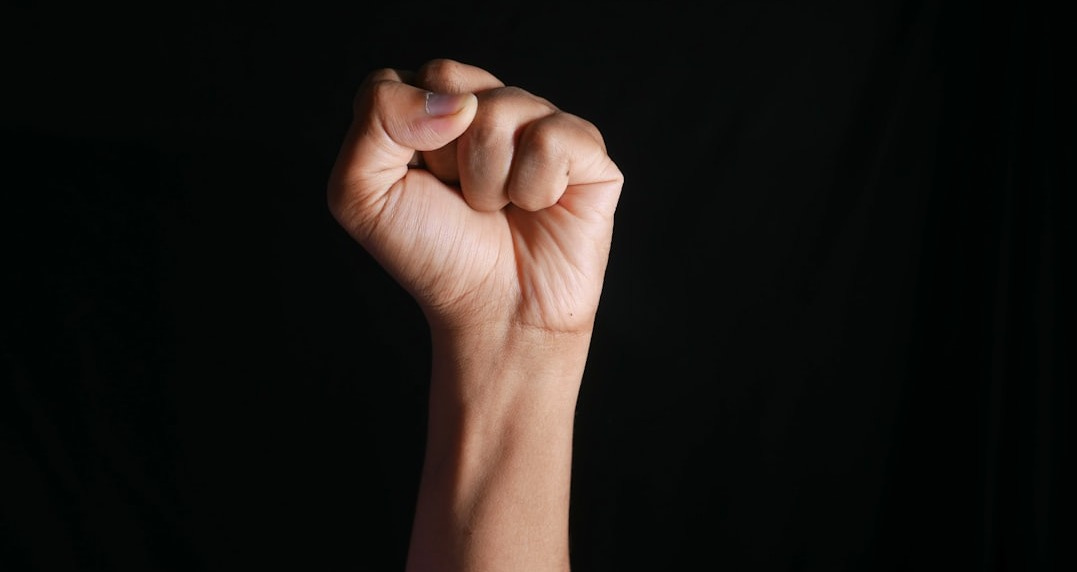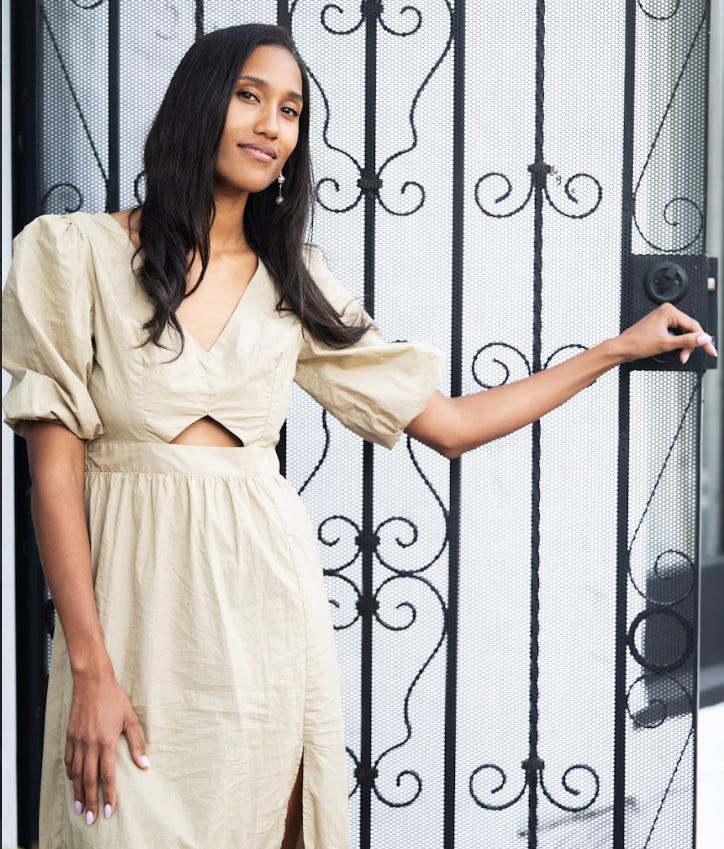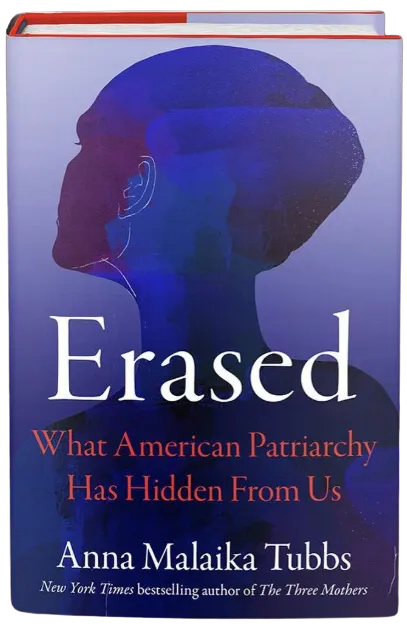How about spending July 4th dismantling patriarchy?
Here's how to do it, with lessons from scholar Anna Malaika Tubbs
There’s no amount of potato salad that’s going to get me excited about the 4th of July this year — and you might be feeling the same — given the cruelty of this moment. But what if this moment holds a portal to something better for this country?
That’s what Anna Malaika Tubbs believes. The best-selling author and sociologist’s new book, Erased: What American Patriarchy Has Hidden from Us, offers a roadmap out of where we’ve come from, and how to chart a new way forward.
For 249 years, she argues, we’ve celebrated a nation that left women outside of the definition of humanity and erased us, completely.
But Tubbs, who has already written a best-selling book about the mothers of Martin Luther King, Jr, Malcolm X, and James Baldwin, and many articles about motherhood, race and patriarchy, refuses to give in to the idea that all is lost.
In her new book, she shows the way that patriarchy has oppressed women and denied their contributions worldwide, but argues that the U.S. has its own uniquely gendered hierarchy. Our very humanity is determined by the gender binary that is also always tied to whiteness.
American patriarchy keeps people in their place, she writes, through reminders of this social order, and by imposing violence and punishment. The actions of the Trump administration are perfect examples of this.
But there’s another way, Tubbs says.
“I visualize American patriarchy as a web stuck to all of us…one you can feel tingling and bothering you,” she writes.
By understanding how it works, she says, “it becomes more visible and tangible. We can put our hands on it, and lift it up, first off ourselves and then off others.”
So heading into this July 4th, I thought it would be great to allow her to reflect on this moment, and another way forward. (I’ve edited her answers for length and clarity.)
Welcome new readers! You can subscribe to MR using the button below.
The best way to support us is with a paid subscription, starting at less than $5. Paid readers get access to all our paid posts, chats, and book club. And get to belong to something that J.D. Vance would definitely hate. Win!
You write about the history of the Supreme Court’s rulings over the nation’s history, so I’m curious to hear your thoughts about recent Supreme Court rulings that continue to cement the power of American patriarchy, particularly the ones that allow states to block Medicaid payments to Planned Parenthood, and that allow parents to opt-out their kids out of lessons focused on LGBTQ+ books. And how are you reflecting on the Trump administration's undermining of civil rights law broadly?
Everything comes back to this initial social order that I identify in the book: The crux of American patriarchy is that our founding fathers defined humanity in the U.S. with this gender binary that only really recognized themselves and men like them – and how that excludes everybody else from accessing humanity.
The rest of us are then told to basically fight for our right to be gendered in this already problematic and limited gender binary that was set up by our founding fathers.
So everything that is coming out of this current administration is being used in service of protecting this original social order. Our Supreme Court justices are the ultimate protectors of that social order – especially our current Supreme Court. Anything that makes it easier for one group to hold power – and that takes power or resources or money away from every other group – is in alignment with that original social order.
Planned Parenthood goes against this initial social order, and so it makes sense that it'll be attacked.
So we're going to see the diminishing of resources that acknowledge these groups, particularly anything that just says they exist, period – because their existence tells us that American patriarchy is not the full picture, that we actually do have access to choose other ways of living, other ways of organizing ourselves.
I love the idea that you discuss that patriarchy survives because it erases the tools we need to dismantle it. That’s part of the name of your book. What are some of those tools, and what are the solutions and interventions you see?
When I was writing this book, I was thinking of exactly what's being taken from all of us, and why it's being taken from us. Words like our intuition and courage and interconnectedness and ancient wisdom came to me.
At first I thought: Oh, those words are not very serious. Maybe they're a little too cliche. Maybe people won't take this book seriously if I say that these are the things that we have to reclaim.
But I realized that even my reaction was a result of American patriarchy telling us that those things are not serious.
In fact, that's exactly what we need to reclaim.
Something like intuition is an ability to hear ourselves over those messages that we talked about in the last question, the ability to still recognize when something feels unjust. When somebody’s telling us that it's okay for inequity to exist or it's okay for the people in front of us to be taken away.
If we're thinking about this current climate, for example, we have to return to being able to hear ourselves and know when something feels wrong and when we feel like we need to stand up against something.
If we're expanding on something like ancient wisdoms, that means that we don't trick ourselves into believing that American patriarchy is all that has ever been available to us, that it's all that has ever existed, and that there are no other ways of living or organizing ourselves.
In reality, we know that American patriarchy was not the first way in which the people of this land organized themselves.
American patriarchy is fabricated, and because of that fabrication, it's very vulnerable. When we're aware of that vulnerability, we become much more aware of what it's trying to hide: the evidence of other ways of living.
I think that that returns power to us when we're aware of how fragile the system is.
These are the things that really bring us the strength to stand up in times where fear is being used to control us and erasure of the past is being used to confuse us, and messages are being sold to us that divide us from one another, so that we turn our attention on each other, rather than on a system that didn't serve any of us.
White women have always been servants of patriarchy because of the ways white supremacy serves them. With today's obsession with “tradwives” and growing numbers of MAGA women, do you have any hope that white women can ever really be allies to women of color and queer women?
I have a lot of hope. I think it's always necessary to hold on to the hope that everything can be done differently. People can change.
I am always wary of speaking about an entire group of people as if they are all a monolith, because I definitely don't believe that to be the case.
I also was raised by a white mother, and so I was so grateful and blessed to have a mother who understood allyship and understood how we walk together in partnership, without trying to tell each other what it is to be in the other's shoes.
I always use my mom as an example of what allyship actually means. My mother, in so many ways, not only through actions, but also in her words, showed me that she wasn't going to tell me what it was like to be a Black girl in the U.S.
Instead, she was going to walk beside me, and do her part to learn how she could make this world worthy of me, her child.
Defunding Planned Parenthood, for instance, is in the same fight as telling people that their kids don't need to learn about LGBTQ people. That is the same fight as immigrant families being separated from each other and parents being deported and their children being left stranded on the street. That's in the same fight as the erasure of Black leaders from history. It's all the same fight. Hopefully we realize that before it becomes too painfully obvious over these next several years. Then we can finally do something about it.
While you’re here, we would love it if you would fill out this quick survey to let us know what you think of this work. It’ll help us make MR even better!
We’d love to hear from you.
What gives you joy, hope and strength in doing this deep research? What are the graces and life affirming lessons of this work?
I always feel so joyful when I'm around my children. I have three kids under the age of five and a half, and every day I get glimpses of what it is to see the world through their eyes, and that's a powerful thing, because obviously they're unaware of all of these hardships on a national level. They're always imagining and dreaming and living in these magical worlds of creativity, and I think that that is something more of us as adults need to reclaim.
It's always for me about carrying forward a legacy of Black womanhood in the United States. By law, Black children were seen as somebody else's property, Black women were seen as somebody else's property, and were seen as less than human. But Black women never believed that to be true, and Black women have always fought for this nation to see things through our eyes, and have fought to shift policy and introduce new laws that acknowledged our humanity and certainly acknowledged the humanity of our children.
That's the kind of courage and mindset that we all need to have in moments that feel very fearful and feel very heavy and feel very hopeless.
You have to be able to say: Something else exists. This can't be true. I don't believe this thing that's being offered to me, and I'm going to build something different, because it's the only option I have.
You can find Anna on Instagram, and learn more about her work on her website.
Want to spend the 4th dismantling patriarchy? Here are a few other places to help you get started!









Thank you for sharing this interview! I had no idea Tubbs had a new book out! I really loved The Three Mothers, its perspective and context -- frankly Tubbs is just an amazing writer. Can't wait to get my hands on Erased!
love the way she frames everything. thank you!